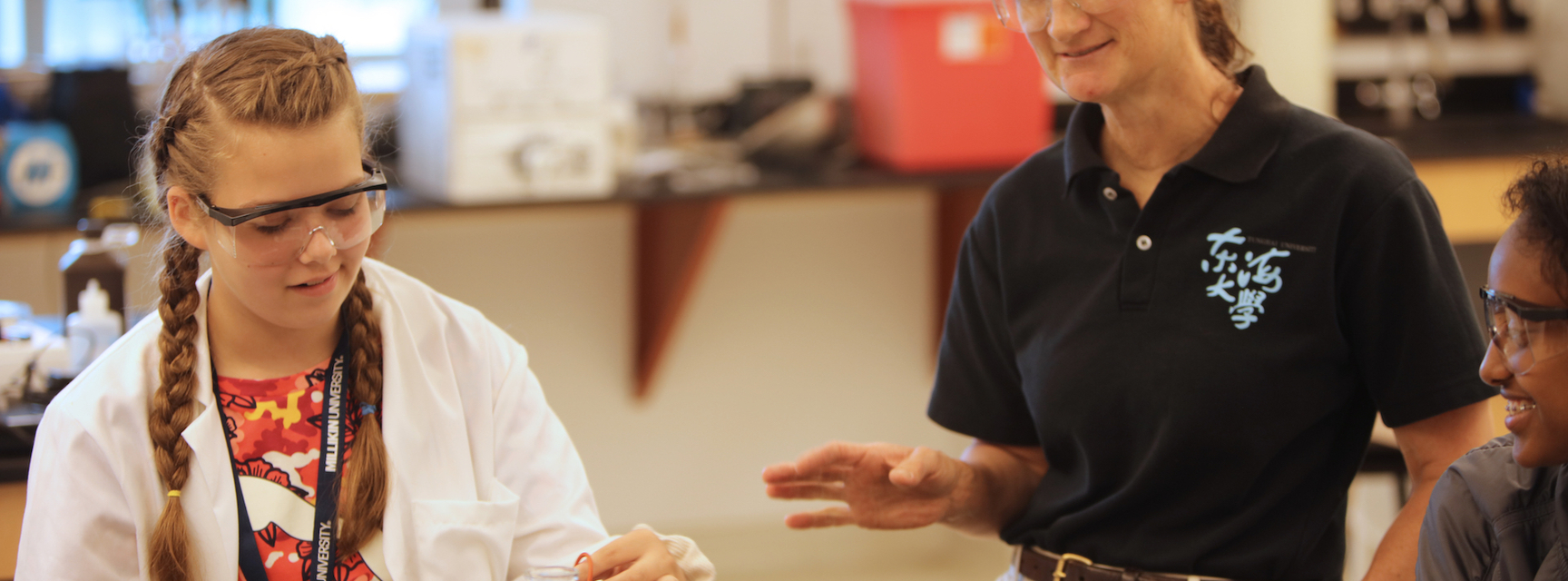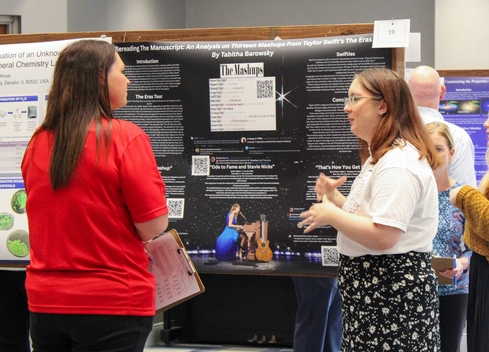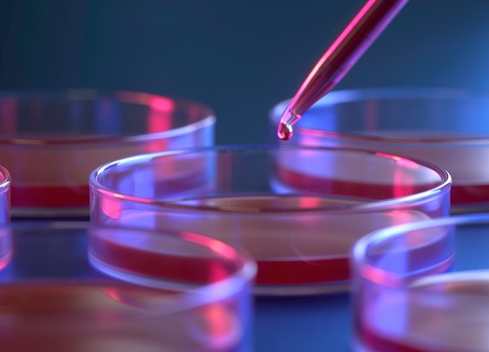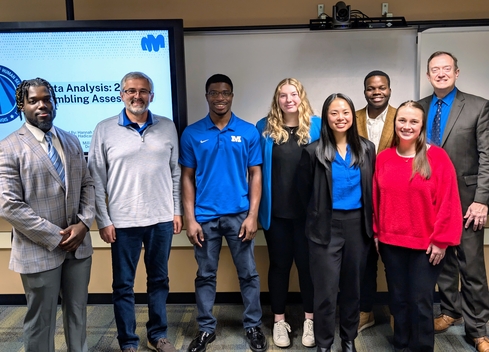Analysis of Biological Data This course is designed for students who want to apply appropriate statistical tests to their data analysis, and who want to understand the statistical tests that biologists regularly use. Focus will be on the basics of the mathematical reasoning of the statistical tests, how to choose the appropriate test for a given data set, how to design experiments to make them more suitable for statistical analysis, and how to interpret and present the results of statistical tests. (BI240) Scientific Inquiry and Writing in Biological Sciences This course is designed for transfer students in biology who have received transfer credit for Ecology and Evolution laboratory, to provide experience in using primary literature, designing and carrying out an independent research project, writing using biological style, and applying evolutionary concepts. (BI255) Ecological Journey This is a travel course designed to familiarize students with principles of ecology in exotic or unusual environments, with an emphasis on identification of common species and interactions between species. Students are expected to attend all class sessions during the semester as well as make the extended field trip to the off-campus site, such as in Costa Rica, Alaska, and South Africa. Students are required to research and present information to the group about assigned sites before the trip. Students registered for BI 380 will also work together to design and carry out field investigations to be conducted on the trip, and to present the results of those investigations after the trip. Students are responsible for travel costs and for obtaining necessary documents and medical precautions for travel to the specific site. No pre-requisites for Biology 280: Biology 105/155 and 108/158 are pre-requisites for BI 380. Instructor consent is required for all students. This course counts as a lab science and as off campus study for the MPSL and is also a Biology category 1 or 2 class. (BI280) Genetics This course studies of structure, function and transmission of hereditary material. Topics in both lecture and laboratory include patterns of inheritance and statistical analysis; molecular, biochemical and microbial genetics; gene regulation, mutation and population genetics. Pre-requisites: Biology 105/155 and/or BI 108/158 or consent of instructor. Can count as Biology Content Category 5, Molecules/Cells or Category 6 Reproduction. (BI300) Secondary Scientific Content and Lab Development This course is designed for students who are planning to be certified in Illinois to teach middle or high school science. The modules are intended to help the student to fill in gaps in content knowledge. Students will complete instructional modules in the following topics: astronomy, earth science, instructional planning and assessment in science. national science education standards, and safety in the classroom. Cross-listed with CH 310. Pre-requisite: Acceptance for Student Teaching. Co-enroll in ED 425. Fall. (BI310) Immunology Theories and mechanisms of infection and immunity. A general course dealing with the nature of antigens, antibodies, immunologic reactions with consideration of antibody structure and the cellular, biochemical, and genetic basis of immunity. Allergic phenomena, autoimmune disease, transplantation, and cancer will be discussed. Laboratory exercises will involve both innate and acquired immune mechanisms. Pre-requisite: Biology 305/355. Biology Content Category 4 or 5. (BI312) Animal Behavior Analysis and description of behavior at both the proximate and ultimate levels in both invertebrates and vertebrates is stressed. Topics include proximate studies focusing on the roles of physiology, hormones, and genetics in shaping behavior. At the ultimate level, behavioral evolution is stressed with emphasis on adaptations and fitness consequences of behaviors. Topics such as learning and memory, defense, feeding, reproductive behavior, territoriality, parental care, communication, and social hierarchies are covered. An appreciation of Behavioral Ecology is emphasized. Class learning goals include developing an understanding of the fundamental principles of animal behavior through class DISCUSSION, developing a comparative EVOLUTIONARY appreciation of animal behavior, and interpreting current literature on animal behavior. Laboratory learning goals include gaining insight into methods of behavioral research, APPLICATION of the scientific method, and effectively presenting research results in both oral and written format. Pre-requisite: BI105/155. (BI323) Vertebrate Biology The distribution, ecology, classification and evolution of vertebrates. Laboratory will include techniques for studying vertebrate populations, and the collection, preparation and identification of study specimens. Some Saturday field trips are planned. Pre-requisite: Biology 108/158 or consent of instructor. Alternate years. (BI325) Physiological Ecology Theories and mechanisms of the ecological relevance of physiological processes. An advanced course dealing with the nature of major physiological reactions and systems with specific consideration of how physiological variation at the individual level and physiological adaptation at the population level contribute to fitness. Complex ecological concepts such as the effects of disease and immunity on population dynamics, the influence of xenobiotics on fitness, and the integration of physiology and behavioral ecology will all be discussed. Throughout the course physiological adaptation and evolution will be the unifying theme. Prerequisites: BI206 and 2207 or BI306 or BI314 or Instructor's Consent (BI335) Conservation Biology This course provides an introduction to conservation biology, and will focus on the earth’s biological diversity, threats to its biological diversity, how threats influence populations and species, and solutions to dealing with those threats. (BI340) Evolution Evolutionary history prior to Darwin; Darwin and natural selection; population genetics; molecular evolution; evolution of sex; altruism and group selection; speciation and macroevolution, human origins and evolution. Lecture only. Pre-requisite: Biology 300/350 or consent of instructor. (BI404) | 





